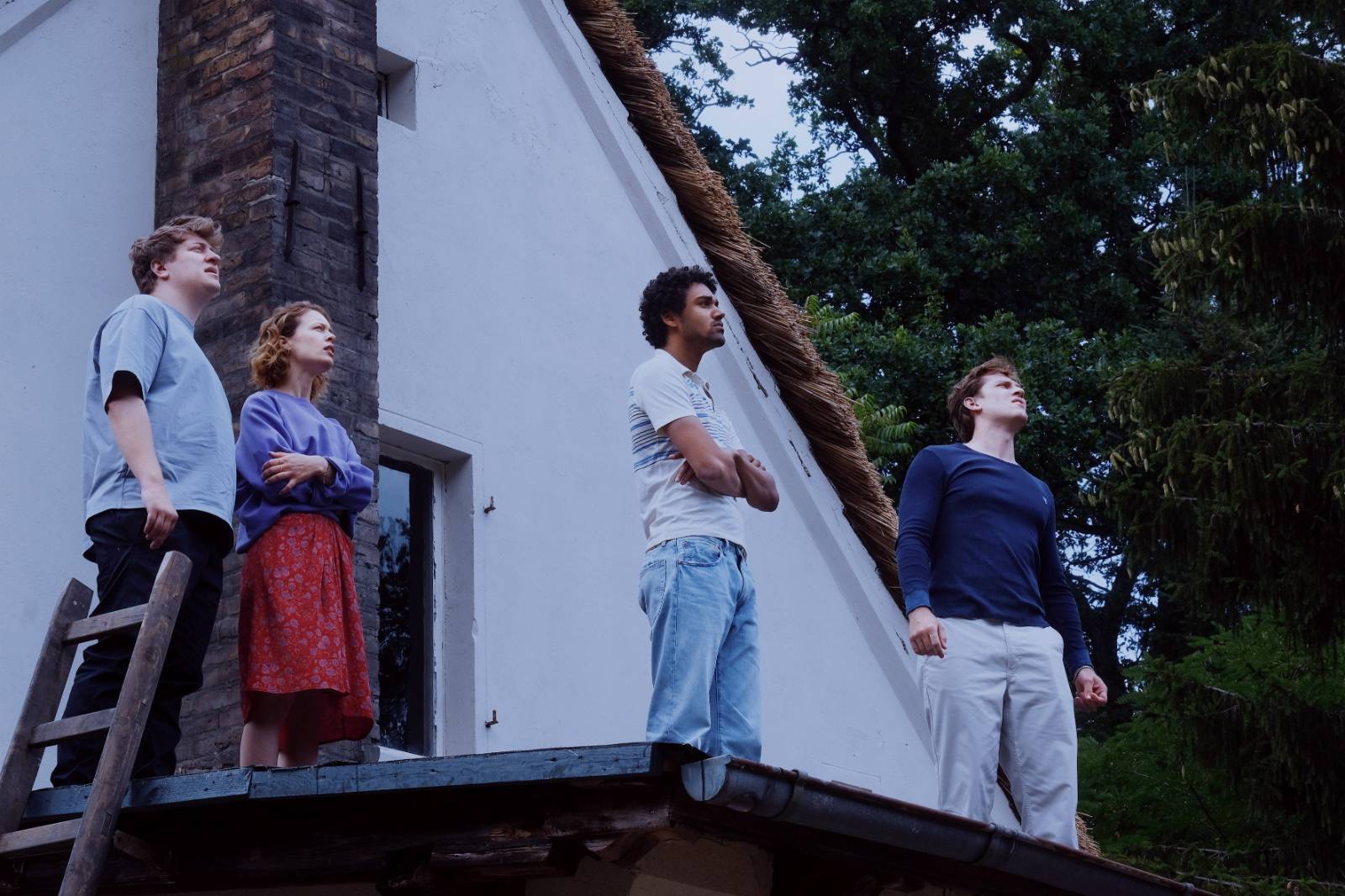Writing recently about the introduction of video umpires in baseball, of all things, Zach Helfand was skeptical: “accuracy is not the same as enjoyment,” he wrote, “baseball is meant to kill time, not maximize it.” The best films of German director Christian Petzold do both, though you sense his heart might belong to the former. Petzold’s latest, Afire, unfurls with all the page-turning seduction of a gripping novella. It stars Thomas Schubert as a struggling writer who travels with a friend to a secluded house near the Baltic Sea. Their car breaks down. They encounter a beautiful woman. Somewhere in the distance, a forest fire rages. Soon, inevitably, another burns inside.
Petzold might be the best director of melodramas working today. (Few filmmakers across the world could get away with that metaphor, let alone make it sing.) At their best, his films are about the closest thing to a guarantee of mystery and romance that contemporary cinema has to offer. And though their pleasures are perfectly enjoyable al fresco (time killed, as it were, not maximized), they also come laced with political, historical, sociological, and ecological intrigues. In Afire, Petzold scatters his literary references like a breadcrumb trail (Heinrich Heine’s Romanzero here, Uwe Johnson’s The third book about Achim there) yet, like the architectural curios in Undine, understanding their deeper meanings is purely optional.
Schubert stars as Leon, a published writer now daunted by the specter of finishing his second novel. His friend is Felix (Langston Uibel), a photographer assembling a portfolio for an application to the UDK. The house belongs to Felix’s father, but the duo arrive to discover that another woman, the niece of Felix’s mother’s friend (phew), is already there. For a time their only impressions of her are the dishes she leaves out and the moans and grunts emitting from her bedroom at night. Long before even setting eyes on her, poor Leon is infatuated.
To say this woman is played by Paula Beer is like saying the clocks go forward in springtime. Petzold used to make melodramas with Nina Hoss, perhaps the best German actor of her generation; now he makes them with Beer, perhaps the best of hers. Afire is their third collaboration after Undine (in which she moved like a mermaid) and the brilliant Transit (in which she moved like a ghost). Beer is decidedly tactile and human in Afire, yet the film is no less perplexed by her. Though Nadja stalks the margins from the opening moments, she is only revealed after a full half-hour has passed, appearing with a basket of white linens by the washing line like some kind of Germanic sense memory made whole.
Beer is not the only familiar flourish here. Hans Fromm, cinematographer of each of the director’s films to date, is back behind the camera to bring requisite levels of deceit and suggestion: characters are often vanishing into trees, if seen at all; a sun-dappled color palette that feels more stifling than warm. One early mystery comes in the form of a local lifeguard with whom Nadja has been sharing her bed. Named Devid (Enno Trebs), his presence and physique are the first of many things to trigger a dormant beta-complex in Leon. A leaky roof and a visit from his publisher will do little to help. As the rest of the group ease into the situation, their libidos rising to match the seasonal heat, Leon only grows more rigid. He attempts a writerly break to a separate hotel near the beach, but once again runs into Nadja, this time selling ice cream. Enthralled, he decides to let her read his manuscript; at which point Petzold flips his script, at last allowing Nadja’s interiority to take over. Afire wraps up with a signature piece of Petzoldian exposition––spoken in a kind of voiceover, and with enough deadpan irony to leave you no less befuddled than before.
The torment inside Petzold’s inept protagonist is soon mirrored in the landscape, yet the message here may have less to do with Leon’s worries than the cosmic irrelevance of them. Afire is the second of a previously announced trilogy based on elemental myths and, if the first two are anything to go by, whatever comes next will presumably offer a similar ecological parable. After water and fire, might Petzold’s next take place on one of Germany’s offshore wind farms? You wouldn’t bet against it; nor would you bet against Beer materializing, all salt-flecked and windswept, with all those big white blades spinning seductively on the horizon. Sign me up.
Afire premiered at Berlinale 2023.

